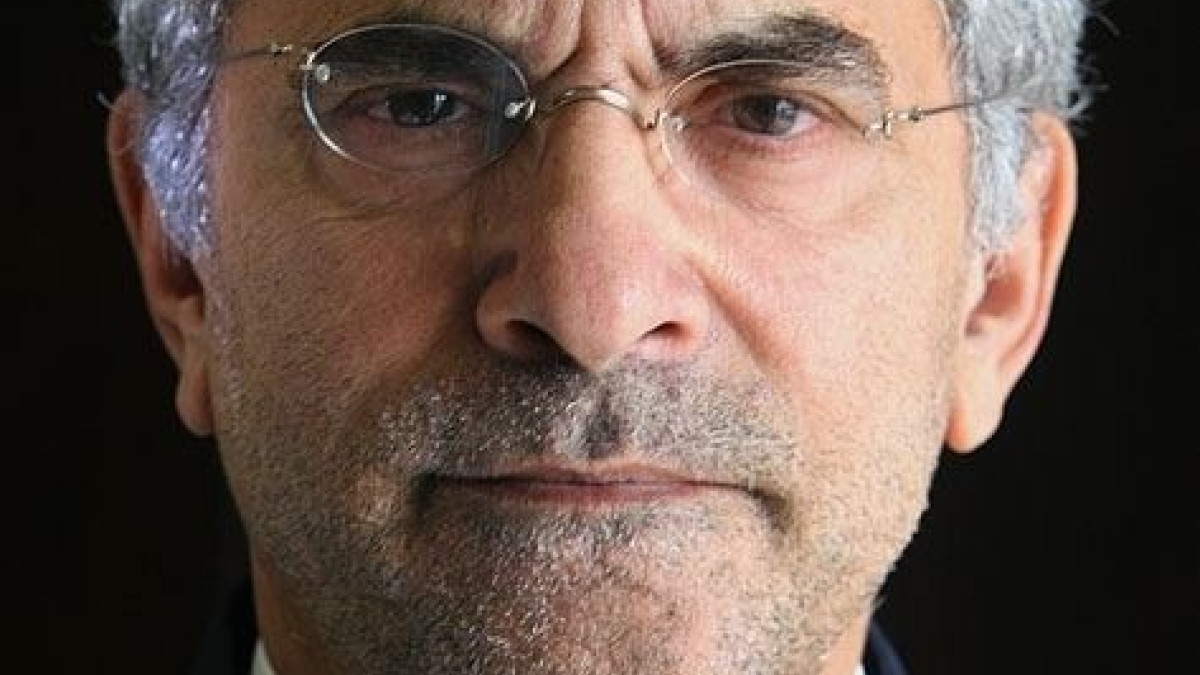Former Timor-Leste president says strong leadership can lead to recovery during ASU Distinguished Global Leaders talk

José Ramos-Horta, former president of Timor-Leste.
In a time of a pandemic and worldwide economic turmoil, powerful leaders and countries need to lead the world toward recovery.
That was the message from former Timor-Leste President José Ramos-Horta during a lecture Oct. 1 as part of the Distinguished Global Leader Series presented by Barrett, The Honors College at Arizona State University.
“It is in times like this that we see the need of strong international institutions — this is not the time for the United States to walk away,” Ramos-Horta said.
The United States is a guide for many countries, Ramos-Horta explained. Developing nations need strong leadership to bring together resources and to come up with a global strategic plan to address the current state of the world.
Ramos-Horta’s talk was delivered via Zoom. Wearing a shirt inspired by traditional Timorese weaving and a traditional necklace, Ramos-Horta sat in his outdoor dining area with the sun shining bright and the wind blowing.
From 2007–2012, Ramos-Horta was the president of Timor-Leste, a small island nation in Southeast Asia surrounded by Indonesia and directly north of Australia. Before that, he held numerous government positions and in the 1970s was an activist who gained national attention.
In 1996, Ramos-Horta was co-awarded a Nobel Peace Prize for his work “toward a just and peaceful solution to the conflict in East Timor,” according to the Nobel Peace Prize website. In 1975, when Portugal devolved its colonial rule, East Timor was occupied by Indonesia.
Ramos-Horta also has worked extensively at the United Nations, and said it plays an important role in the world.
Small to midsize countries depend on the United Nations for coherency while tackling global problems, but the U.N. is not able to be as effective because of certain political leaders, Ramos-Horta said.
“It (the United Nations) has been largely sidelined by the powers that be, particularly by the United States and Russia and so on,” Ramos-Horta said.
There is a question on whether the current U.S. administration can even unite its own people, Ramos-Horta said. It needs to remember the country was “built up” by immigrants.
Throughout the world, there are powerful countries and powerful regional groups, he said, mentioning the Association of Southeast Asian Nations (ASEAN).
“ASEAN is probably the most influential regional group anywhere in the world,” Ramos-Horta said. “In spite of these deep differences in political systems, in culture, in religion, ethnicity, ASEAN has been able to (hold) itself together and has proven to be an indispensable partner internationally.”
Currently Timor-Leste is a member of the ASEAN Regional Forum, not a member nation of ASEAN. The country applied for full membership status almost a decade ago and hopes to join the regional body as its 11th member by 2021 or 2022, Ramos-Horta said. That will be important, he added, because Timor-Leste will bring experience in national and international conflict resolution to the group.
Dialogue is the main conflict resolution strategy Timor-Leste has used to heal itself after conflicts, Ramos-Horta said. “Dialogue means you listen to people and heal the wounds.”
About his career in political leadership in Timor-Leste, Ramos-Horta said he is most proud of being part of uniting the country to prevent another civil war.
Mark Jacobs, dean of Barrett, The Honors College, said the Distinguished Global Leader Series started at the honors college three years ago, “to expand and heighten its global initiatives with the sole purpose of giving honors students a better understanding of global issues” and “to bring real leaders from the outside world to ASU and Barrett to discuss global issues here.”
Sarah Cichomski, a student at the honors college, said, “It’s an honor to have been able to hear (Ramos-Horta’s) wisdom, especially in such trying times. It almost feels like the world is going through a reconciliation.”
Jason Briggs, director of Global Initiatives at Barrett, who was the moderator of the talk with Ramos-Horta, said what is happening in Southeast Asia is important everyone. “We need to be well versed in different parts of the world so that we can understand ourselves and others better.”
Story by Sinead Hickey, a graduate student in the ASU Walter Cronkite School of Journalism and Mass Communication.
More Law, journalism and politics

ASU committed to advancing free speech
A core pillar of democracy and our concept as a nation has always been freedom — that includes freedom of speech. But what does…

ASU experts share insights on gender equality across the globe
International Women’s Day has its roots in the American labor movement. In 1908, 15,000 women in New York City marched to protest…

ASU Law to offer its JD part time and online, addressing critical legal shortages and public service
The Sandra Day O’Connor College of Law at Arizona State University, ranked 15th among the nation’s top public law schools,…